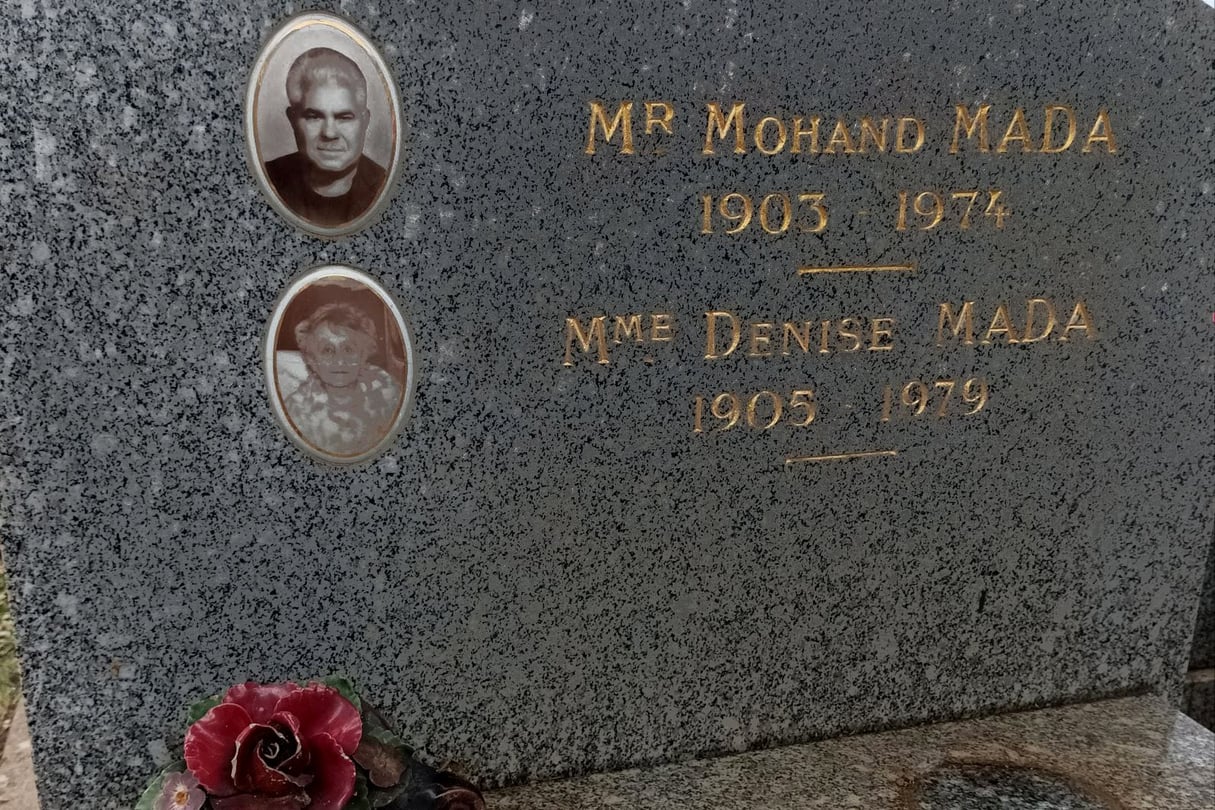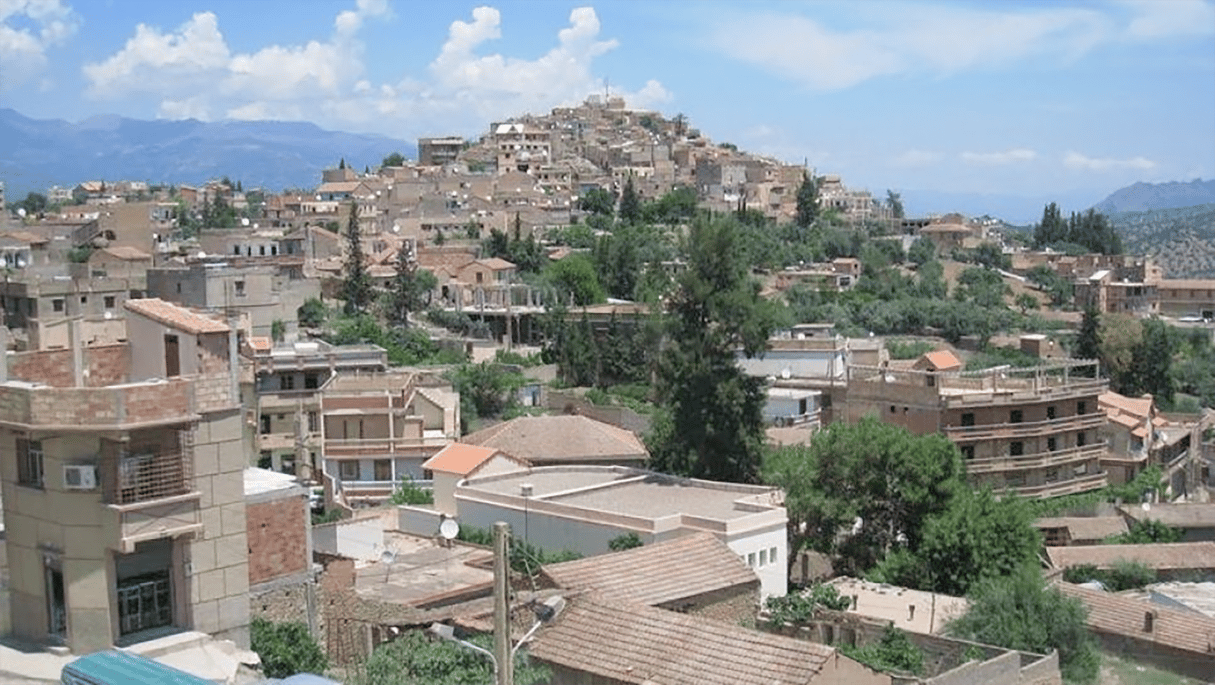Farid Alilat, The Africa Report, 24/6/2024

Jordan Bardella, the president of France’s far right Rassemblement National, has an Algerian great-grandfather who was an immigrant worker. He settled in France, in the Lyon region, in the early 1930s.
Jordan Bardella, president of the Rassemblement National and a potential future French Prime Minister, never speaks of his great-grandfather’s Algerian origins. The topic is hidden within the Bardella family and remains a taboo within Marine Le Pen’s former National Front. Yet, Mohand Séghir Mada, Bardella’s great-grandfather, indeed hailed from Kabylia, Algeria.
The Rassemblement National has made immigration one of the lynchpins of its election campaigns, regularly hammering migrants as being part of the social ills of France.
France will hold legislative elections on 30 June and 7 July, following President Emmanuel Macron’s decision to dissolve parliament after a disastrous showing in recent European elections.
Back to Guendouz
The ancestor of Jordan Bardella came from the village of Guendouz, the main town of the Aït Rzine commune in the Bejaïa department*. In the 1920s, Algeria was a French colony, and in this small village clinging to the mountains facing the Soummam Valley, people survived by cultivating small olive fields and raising goats and sheep. Misery was widespread in the Kabylia region.
Albert Camus, a writer and future Nobel laureate in literature, was so moved by the situation that he dedicated a series of reports to it, published in 1939 in the newspaper Alger Républicain under the title “Misery in Kabylie.”
There were no factories, colonial farms, or manufacturing plants to provide jobs and prevent starvation. This dire poverty and hunger drove hundreds of thousands of people from Kabylie to emigrate to France in the early 20th century to work in factories and mines. In Guendouz, the Mada family struggled. The hardship forced Tahar Mada and his two sons, Bachir and Mohand Séghir, to sell or mortgage their olive fields.
To feed the family, the only option was to take a boat to France. Thus, in 1930, Mohand Séghir Mada and his older brother, Bachir, left their village for mainland France. Upon arriving in Marseille, Jordan Bardella’s great-grandfather moved to the Lyon region, with several thousand Algerian immigrants working in textile factories. According to Moussa Mada, Bachir Mada’s son, the two brothers worked in a dye factory in Villeurbanne.
Bachir Mada regularly sent money back home, while his brother Mohand Séghir enjoyed the French lifestyle. For a young man from impoverished Kabylie, the temptations of a modern city were overwhelming. Mohand Séghir enjoyed Lyon in the 1930s so much that he vanished, losing contact with his family.
The elder brother returned to Algeria, but Mohand stayed in France. After years of searching, Bachir eventually found his brother. Mohand Séghir had married Denise Annette Jaeck, an Alsatian woman, in Villeurbanne in February 1937. They had four children: Roland René, Jean, Simone Denise, and Réjane. Réjane, who has a name of both Arab and Latin origins, married Guerrino Italo Bardella, Jordan Bardella’s grandfather, in Montreuil in 1963.
Connection to Algerian family
When
Bachir found his brother, he reminded him of his engagement to their
cousin Houria, who was waiting for him in Algeria. But Mohand Séghir
refused to return, never wanting to relive the poverty he had escaped.
He signed a proxy for his brother to cancel the engagement. Bachir
returned to his village at the end of the 1930s, but Mohand Séghir never
set foot there again.
Of Mohand’s four children (including Réjane, Jordan Bardella’s grandmother), only Roland René reconnected with his Algerian family in Guendouz. Starting in the mid-1990s, he visited the village four or five times. His daughter Véronique even married Ahcène Mada, a distant cousin living in France.
According to Moussa Mada, Mohand Séghir never applied for French citizenship. He died in 1974 and was buried in a cemetery in Montreuil, Seine-Saint-Denis. His descendants regularly visit his grave. His wife, Denise Annette, whose name and photo appear on the same tombstone, died in 1979 and is reportedly buried in Versailles.
 Mohand's and Denise's tombstone in Montreuil
Mohand's and Denise's tombstone in MontreuilAccording to Le Monde, Jordan Bardella once mentioned his origins during a visit to Draguignan. “Indeed, Bardella is of Italian origin. But my parents came from a generation that integrated, worked hard, and loved France. At home, we weren’t allowed to roam the streets at night.”
Yet, he said nothing about his Algerian heritage.
Tlaxcala’s Note
*At the time of his birth in French Algeria, the Aït R’zine
douar was part of the mixed commune of Akbou, Constantine department. The
family belonged to the Aït R’zine tribe, one of the 5 fractions of the large
Aït Abbas/Beni Abbès Kabyle tribe.

Aucun commentaire:
Enregistrer un commentaire